MVI ECOPACK Team -5 minute read
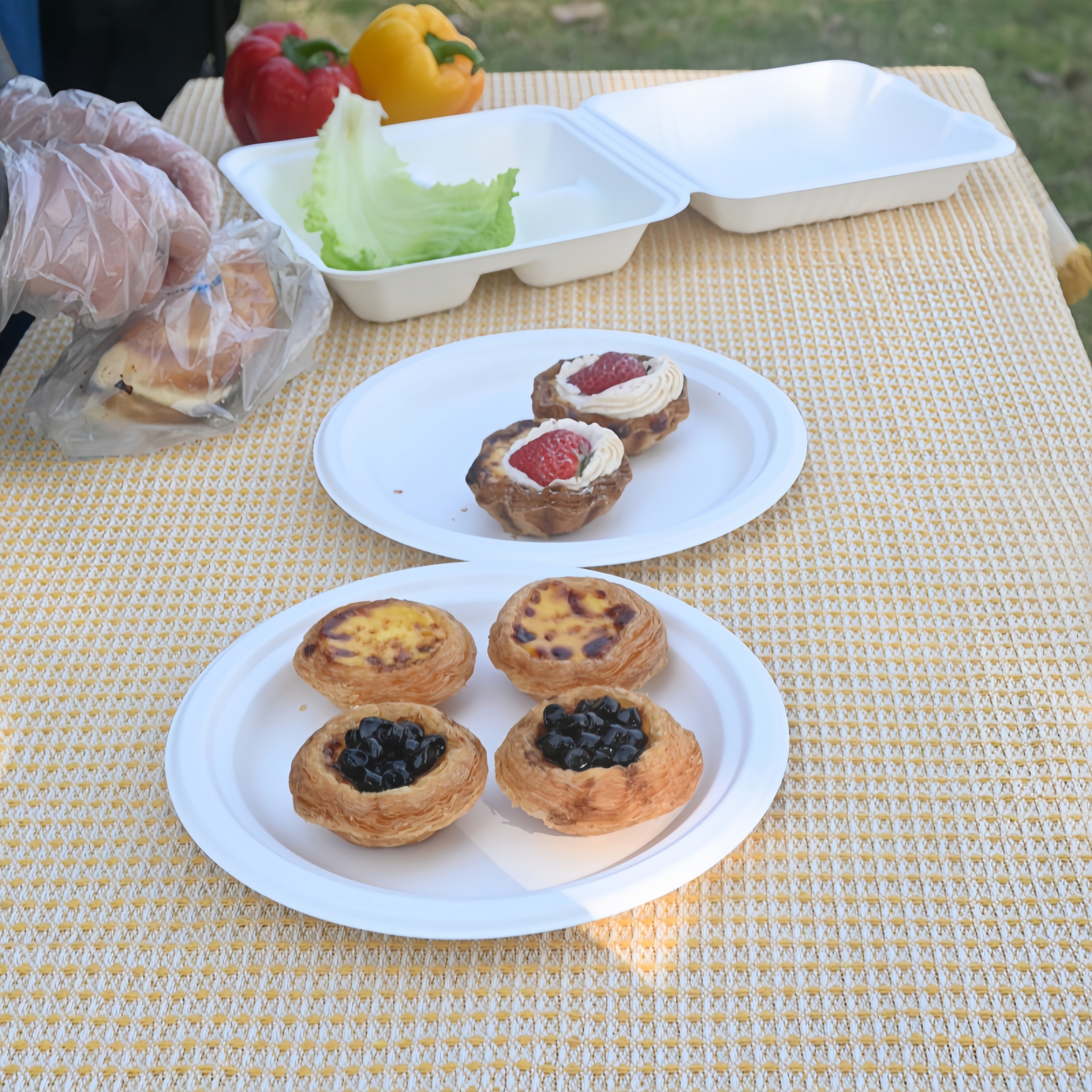
With growing global environmental awareness, molded pulp tableware is emerging as a popular eco-friendly alternative to traditional disposable tableware. MVI ECOPACK is dedicated to providing high-quality, biodegradable, and eco-friendly tableware, actively participating in social and environmental initiatives to promote sustainable development.
1. What materials are used for biodegradable tableware?
Biodegradable tableware primarily utilizes natural fibers such as sugarcane pulp, bamboo pulp, and cornstarch. These materials are readily available, break down naturally, and have a much lower environmental impact than traditional plastic products. MVI ECOPACK selects renewable resources, like sugarcane pulp and bamboo pulp, which not only reduce reliance on petrochemical resources but also effectively lower carbon emissions during production. Additionally, MVI ECOPACK promotes the use of low-energy production processes to further reduce resource consumption.
2. How is oil and water resistance achieved in disposable containers?
The oil and water resistance of molded pulp disposable containers is mainly achieved by adding natural plant fibers and applying special processing techniques during production. Typically, these products undergo surface treatments to form a protective layer that prevents penetration by oils and liquids encountered in everyday use. This treatment complies with environmental standards and does not negatively impact the biodegradability of the tableware. MVI ECOPACK's products not only meet stringent oil and water resistance standards but also meet various environmental certification requirements, ensuring their eco-friendliness.
3. Do biodegradable tableware products contain PFAS?
Fluorides are often used in oil-resistant treatments for some tableware but are controversial in the environmental sector. MVI ECOPACK strictly adheres to environmental regulations, ensuring that its products contain no harmful PFAS that could impact the environment or human health. By using natural and eco-friendly oil-resistant materials, MVI ECOPACK’s biodegradable tableware effectively resists oil while providing a safer choice for consumers.
4. Can a custom logo be printed on biodegradable containers?
Yes, MVI ECOPACK offers custom logo printing on biodegradable containers for corporate clients to enhance brand image. To maintain eco-friendly practices, MVI ECOPACK recommends using non-toxic, eco-friendly vegetable inks to avoid environmental and health risks to consumers. This type of ink not only ensures stable print quality but also does not compromise the degradability of the tableware. In this way, MVI ECOPACK helps brands meet customization needs while upholding environmental goals.
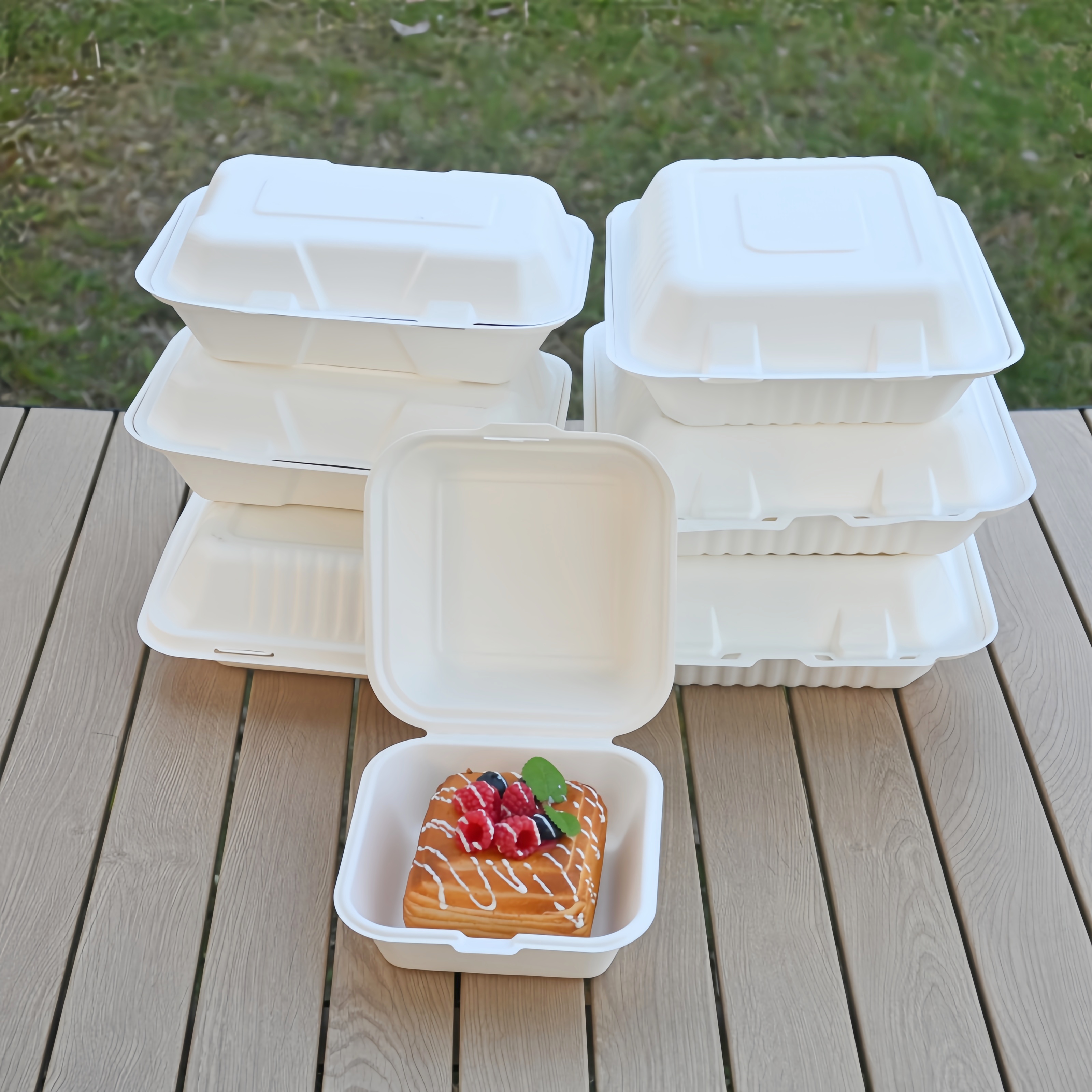
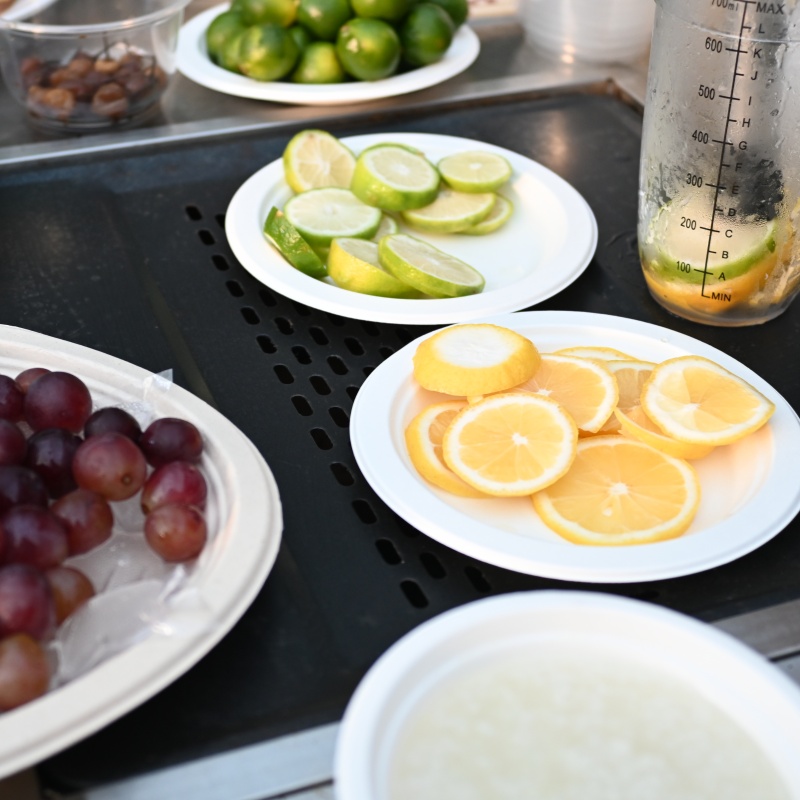
5. Is bleach used in white biodegradable containers?
Many consumers are concerned about whether white biodegradable tableware undergoes bleaching. MVI ECOPACK’s white tableware is made from natural raw materials, and impurities are removed through physical processes, eliminating the need for chlorine-based bleaches. To ensure consumer safety, MVI ECOPACK strictly controls production processes, avoiding any harmful substances to ensure that the final product is safe for health. By adopting this safe, eco-friendly production method, the company continuously strives to provide consumers with genuinely safe and eco-friendly white biodegradable tableware.
6. Are molded pulp containers suitable for microwave and freezer use?
MVI ECOPACK’s molded pulp containers are specially designed to offer good heat and cold resistance. They can be used within a specific temperature range for microwave heating and freezer storage. Typically, these containers withstand temperatures up to 120°C, making them suitable for heating most foods. They also maintain their form without cracking or deforming in freezing conditions. However, to ensure optimal use, consumers are advised to follow product-specific instructions to prevent material damage due to excessive heating or freezing.
7. What is the lifespan of biodegradable tableware? How does it decompose within a reasonable timeframe?
Many consumers are concerned about the lifespan and decomposition time of biodegradable tableware. MVI ECOPACK’s molded pulp tableware is designed to balance durability with environmental impact, decomposing within a reasonable timeframe. For instance, sugarcane pulp tableware typically begins to decompose in natural environments within a few months, leaving no harmful residues. Decomposition time varies depending on environmental conditions such as humidity, temperature, and microbial activity. MVI ECOPACK is committed to developing products that remain sturdy during use but decompose quickly afterward, aligning with environmental standards.
8. What is the environmental impact of biodegradable tableware?
The environmental impact of biodegradable tableware can be assessed based on material sources, production processes, and post-use decomposition effects. Compared to traditional plastic tableware, molded pulp biodegradable tableware requires fewer resources for production and leaves no harmful residues in the natural environment. MVI ECOPACK uses renewable resources such as sugarcane and bamboo pulp, reducing dependence on non-renewable petrochemical resources. The production process employs low-energy, low-pollution techniques to minimize the tableware’s environmental footprint throughout its life cycle.
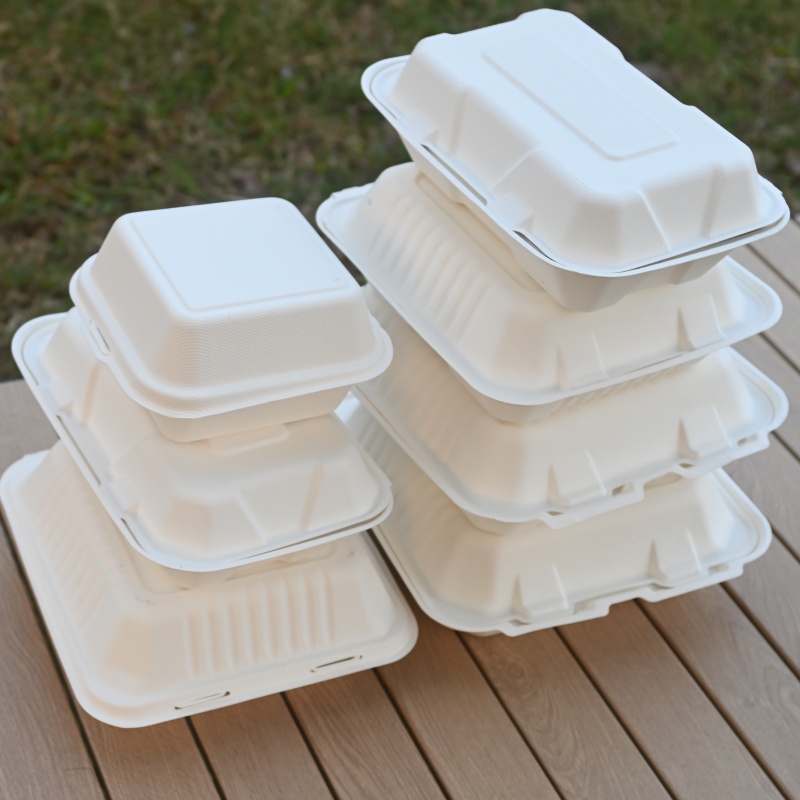
9. How is eco-friendly production achieved in the manufacturing process of biodegradable tableware?
The manufacturing process for molded pulp biodegradable tableware generally includes raw material processing, molding, drying, and post-treatment. MVI ECOPACK focuses on minimizing energy consumption and strictly adheres to environmental standards. For instance, the molding stage utilizes energy-efficient equipment to reduce carbon emissions, while the drying stage maximizes natural drying methods to reduce energy usage. Additionally, MVI ECOPACK manages wastewater and waste treatment to ensure a clean and eco-friendly production process.
10. How should molded pulp tableware be properly disposed of?
To further reduce environmental impact, consumers are encouraged to properly dispose of molded pulp tableware after use. MVI ECOPACK recommends placing used molded pulp tableware in compost bins or managing biodegradation under suitable conditions to expedite the decomposition process. Where feasible, these containers can also decompose effectively in home composting systems. Additionally, MVI ECOPACK collaborates with recycling companies to help consumers understand proper sorting and disposal practices, minimizing environmental impact.
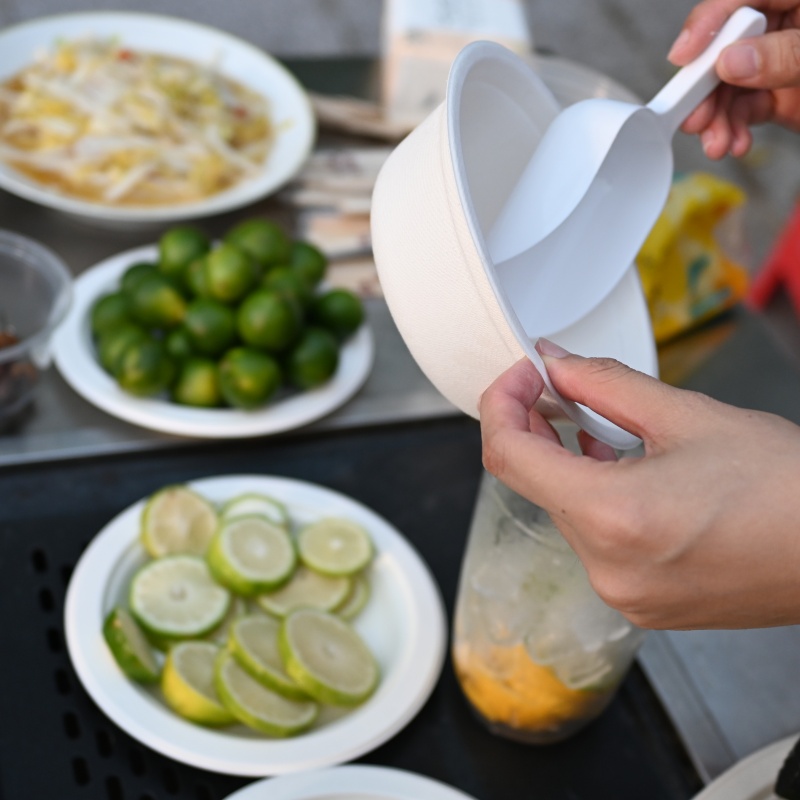
11. How does molded pulp tableware perform under different climate conditions?
Molded pulp tableware is widely applicable and maintains its structural integrity and functionality in various climate conditions. In humid environments, MVI ECOPACK’s molded pulp tableware retains effective water resistance, while it also resists deformation or cracking in dry conditions. In extreme temperatures (such as very cold or high-heat conditions), the tableware continues to exhibit high durability. MVI ECOPACK is committed to designing adaptable products to meet global consumer needs across diverse climates.
MVI ECOPACK’s Social and Environmental Initiatives
As a leader in eco-friendly tableware, MVI ECOPACK not only focuses on producing high-quality biodegradable tableware but also actively participates in social welfare and environmental initiatives. The company regularly organizes waste sorting and environmental protection awareness events, sharing eco-friendly knowledge with the public and raising environmental awareness within communities.
Post time: Nov-08-2024










